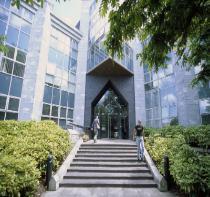In This Section
- Home
- About the Department
- Undergraduate Study
- Postgraduate Study
- Research
- Work Placement
- Our Staff
- Contact Us
- News
- Centre for Local and Regional Governance
- Archive
- Hub in Active European Citizenship
The first Research Seminar of 2019 "The British Army in Northern Ireland" by Dr Huw Bennett, Cardiff University, and Dr Edward Burke, University of Nottingham.

Department of Government and Politics is delighted to launch its Seminar Series in 2019 with a talk by two visiting speakers.
Dr Huw Bennett, Cardiff University, and Dr Edward Burke, University of Nottingham will deliver a lecture entitled: ‘The British Army in Northern Ireland: Understanding Strategy and Civil-Military Relations’ on Tuesday, 15th January, 3.00-4.30 p.m. in the CACSSS Seminar Room (ORB G27), O’Rahilly Building, University College Cork.
All welcome
Tea and coffee will be available afterwards
Abstracts:
Preventing civil war: how the British Army's strategy of containment produced escalation in Northern Ireland, 1966-75, Dr Huw Bennett
The British Army's part in the Northern Ireland conflict in the early 1970s has been recounted as displaying colonial-style brutality, political misdirection, or suffering at the hands of irrational hatreds. Presenting findings from his forthcoming book on the Army's strategy up to 1975, Huw Bennett will argue that these old frames are redundant for understanding how military power affected the conflict's changing character. The talk will emphasise the ability of soldiers to perceive local political dynamics and to act with subtlety in lowering tensions, especially in Catholic areas. By contrast, senior officers and government officials came to view the so-called 'Protestant backlash' with apprehension. The desire to avoid conflict with supposedly fearsome loyalism resulted in a pre-emptive attack on the IRA in summer 1970 before the newly-minted Provisionals had garnered much support. This was done, paradoxically, as a calculated move to protect Catholics from a wave of sectarian assaults. Worst-case scenario thinking, where near-genocidal civil war filled the imagination, repeatedly drove the British Army to concentrate on crushing Republicanism, regardless of the effects on ordinary Catholics, in the mistaken belief that doing so would make loyalist violence disappear. By 1974, with power-sharing in tatters and anything resembling victory an impossible dream, senior officers looked for ways to minimise the Army's commitment to Northern Ireland. But some elements in the Army would always struggle to accept the idea that their mission should be anything other than annihilating the IRA.
Dr Huw Bennett, FRHistS, Reader in International Relations, School of Law & Politics, Cardiff University
The British Army in Northern Ireland: Combat, Cohesion and Deviancy, Dr Edward Burke
In this paper, Edward Burke will argue that British Army small infantry units enjoyed considerable autonomy during the early years of Operation Banner and could behave in a vengeful, highly aggressive or benign and conciliatory way as their local commanders saw fit. The strain of civil-military relations at a senior level was replicated operationally – as soldiers came to resent the limitations of waging war in the UK. The unwillingness of the Army’s senior leadership to thoroughly investigate and punish serious transgressions of standard operating procedures in Northern Ireland created uncertainty among soldiers over expected behaviour and desired outcomes. Mid-ranking officers and NCOs often played important roles in restraining soldiers in Northern Ireland. The degree of violence used in Northern Ireland was much less than seen in the colonial wars fought since the end of World War II. But overly aggressive groups of soldiers could also be mistaken for high-functioning units – with negative consequences for the Army’s overall strategy in Northern Ireland
Dr Edward Burke, Assistant Professor in International Relations, University of Nottingham, and author of An Army of Tribes: British Army Cohesion, Deviancy and Murder in Northern Ireland (Liverpool: Liverpool University Press, 2018).
Department of Government & Politics
Roinn Léann an Rialtais agus na Polaitíochta
Contact us
2nd Floor, Block B, O'Rahilly Building, University College Cork, Republic of Ireland,
